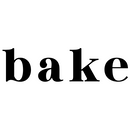Are Cookies Kosher? Unveiling the Truth
In the realm of culinary delights, few things rival the universal love for cookies. These sweet treats have transcended cultural boundaries and become a cherished indulgence worldwide. However, for those who adhere to a kosher dietary lifestyle, the question often arises: Are cookies kosher? In this comprehensive guide, we delve into the intricacies of kosher certification and explore the world of kosher cookies, leaving no crumb unturned.
Understanding Kosher Certification
Before we delve into the kosher status of cookies, it's essential to understand what kosher certification entails. Kosher, a term originating from Hebrew, means "fit" or "proper." It signifies that a product adheres to the dietary laws outlined in Jewish tradition. To receive kosher certification, food products must meet stringent criteria:
- Ingredient Sourcing: All ingredients in a product must be kosher, including additives and flavorings.
- Processing: The equipment and facilities used to manufacture the product should not have been in contact with non-kosher items.
- Supervision: An authorized rabbi or a reliable kosher certification agency must oversee the production process.
- Sealing and Labeling: Kosher products are often labeled with a symbol or certification mark, ensuring transparency for consumers.
The Kosher Cookie Conundrum
When it comes to cookies, their kosher status depends on the specific ingredients and manufacturing process. Let's break down some key considerations:
- Ingredient Selection
Kosher cookies start with kosher ingredients. Common ingredients in cookies, like flour, sugar, and eggs, are typically kosher. However, issues can arise when it comes to flavorings, chocolate chips, or other additives. To ensure a cookie is kosher, every ingredient must meet kosher standards.
- Dairy vs. Pareve
Cookies can fall into two categories: dairy or pareve (neutral). Dairy cookies contain milk or milk-derived ingredients and should not be consumed with meat according to kosher dietary laws. Pareve cookies, on the other hand, can be enjoyed with both dairy and meat dishes.
- Cross-Contamination
To maintain kosher integrity, cookies must be produced in a facility that observes strict kosher guidelines. Cross-contamination with non-kosher products or utensils can render even kosher ingredients non-kosher.
- Kosher Certification
The presence of a reliable kosher certification symbol, such as the Orthodox Union (OU) symbol or the Star-K, on cookie packaging is a clear indicator of its kosher status. These symbols provide assurance to consumers that the product meets kosher standards.
Popular Kosher Cookie Brands
To make your kosher cookie hunt easier, we've compiled a list of renowned brands that offer a delectable range of kosher-certified cookies:
- Manischewitz: Known for its Passover-friendly treats, Manischewitz offers a variety of kosher-certified cookies, including classics like chocolate chip and oatmeal.
- Glicks: Glicks boasts an assortment of pareve cookies, suitable for all occasions. Their kosher certification ensures authenticity.
- Tate's Bake Shop: Tate's is celebrated for its crispy, thin cookies. Many of their offerings are not only delicious but also kosher-certified.
- Enjoy Life: If you're looking for gluten-free and allergy-friendly options, Enjoy Life's cookies are both kosher and suitable for a wide range of dietary restrictions.
- Murray's Cookies: With a selection of delectable flavors, Murray's cookies are a kosher delight that caters to diverse tastes.
Conclusion
In the quest to answer the question, "Are cookies kosher?" the answer is yes, as long as they adhere to the rigorous standards set forth in kosher dietary laws. To ensure you're enjoying kosher cookies, look for reputable certification symbols on the packaging and be mindful of ingredients and potential cross-contamination.
📍 Visit us: 6430 S Decatur Blvd #600, Las Vegas, NV 89118
📱 Shop Phone: 702-530-2336
🌐 Check out our variety: BakeTheCookieShoppe.com
Follow us on Instagram
Follow us on Tiktok








Leave a comment